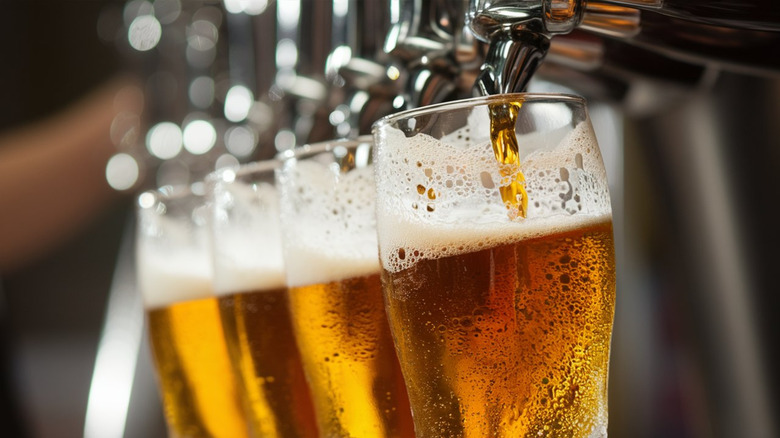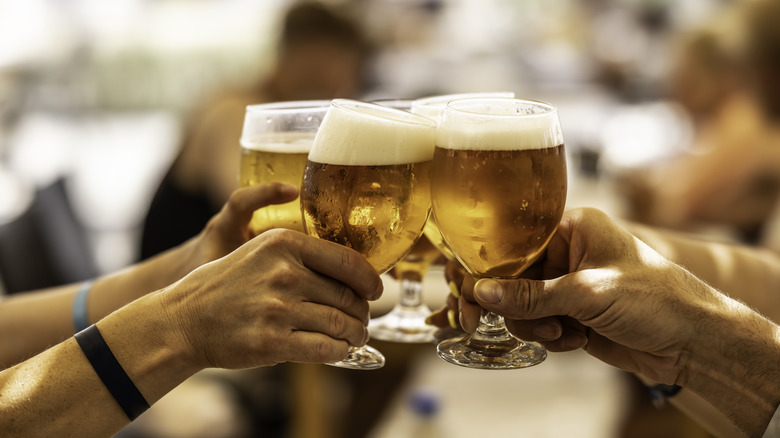Not All Beers Are Vegan. Here's What You Need To Look For
Grain, hops, water, yeast. Of the four things that make up almost every beer, none of them are animal products, so it's easy to assume beer in general is vegan-friendly. But there's a catch — primarily in processing and with certain ingredient decisions. Once you understand those two main factors, you'll see that unfortunately, not all beer is entirely plant-based. But don't be discouraged, as there's still plenty of vegan beer (and wine, too!) out there. You might have to do a little research to ensure your favorites are.
While a beer might use all those lovely vegan-friendly ingredients in the brewing process, there's a filtration step at the end used to remove things like sediment and yeast, creating a clear, shelf-stable beer with only the flavors the brewer intended. Depending on the size of the brewery and the goals for the beer, filtration may involve fancy equipment like centrifuges, adding what's called fining agents to the beer to clump particles together and make them drop out of the liquid, or both. Some of those fining agents are animal products. One of the most common is isinglass, which is made from fish bladders, and there's also animal-derived casein and gelatin. Luckily, brewers are increasingly using plant-based Irish moss and synthetic materials like silica. Another way animal products can get into beer is when brewers add things, like lactose, or milk sugar, that gives IPAs, sours, and stouts smoothie-like sweetness and texture. Certain pastry stouts might include anything from cheesecake to chocolate, too.
What beers are vegan and how to find them
Breweries are not required by the U.S. government to list nutrition facts on labels, and it can be cost-prohibitive to do so, especially for independent breweries. That means it can be tough to pinpoint exactly what's in what beer. Of course, the ingredients chosen for flavor are easier to detect. If you see "milkshake," "pastry," "smoothie," "sweet," or "cream" as modifiers, assume some presence of a dairy product like lactose — of the various types of beer, styles like IPAs, sours, and stouts are the likeliest candidates. Other ingredients will be front and center on labels because selling the flavor is the point: If there's a maple bacon stout, that will be prominently advertised.
Knowing what breweries have used animal products for filtration is trickier, so that's where research and investigation come in. There are vegan sleuths out there compiling lists of vegan-friendly beers, and you can turn to trusted sources like PETA. Especially in the case of craft breweries, just reach out and ask about beers via email. Some have become more transparent and promote not using animal products as part of their sustainable brewing practices, like 10 Barrel Brewing in Oregon and Joseph Holt in the United Kingdom. Of 45 of the most popular beers, breweries like Heineken, Beck's, Budweiser, and Miller produce vegan beer. Notably, major brands Fosters and Carling are not. You also have tons of craft options from breweries like Sierra Nevada, Odell, Pennsylvania Brewing Company, and Anderson Valley.

